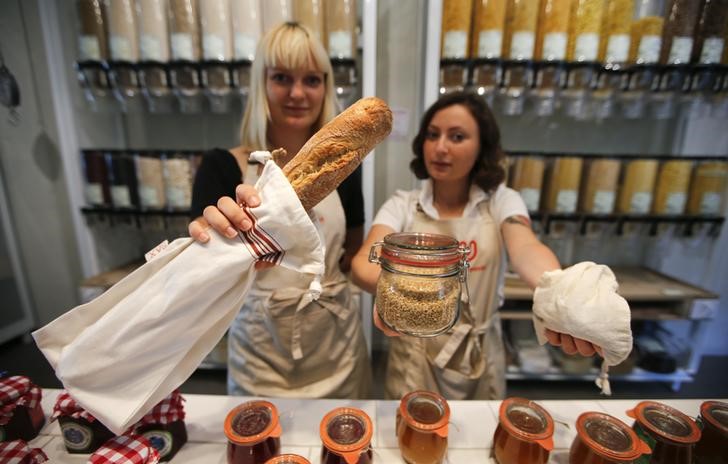BRUSSELS (Reuters) - The euro zone grew much less than expected in the third quarter and economic confidence continued to fall, official estimates showed on Tuesday, as signs of distress became more evident in Italy, the bloc's third biggest economy.
The European statistics office Eurostat said economic growth in the 19 countries sharing the euro slowed to 0.2 percent in the third quarter against the previous three months, after a 0.4 percent expansion in the second quarter.
Year-on-year euro zone growth slowed to 1.7 percent from 2.2 percent in the second quarter. Economists polled by Reuters had expected a 0.4 percent quarterly expansion and a 1.8 percent year-on-year rise.
Eurostat does not provide national data in its flash estimates, but figures released earlier on Tuesday by the Italian statistics agency showed Italy's growth had halted in the third quarter amid a row with the European Union over the country's budget for next year.
In a separate release, the European Commission said on Tuesday economic sentiment dropped in the euro zone for the tenth consecutive month, and by more than expected by economists.
The indicator, that shows managers and consumers' morale, fell to 109.8 points in October from 110.9 in September in its biggest dip since March.
Although it remains above the long-term average, the indicator has been falling since the beginning of the year after having risen steadily in 2017.
In October the largest fall was recorded in retail services as managers held "much grimmer views on the present and expected business situation," the Commission said and the indicator of selling price expectations dropped.
Confidence in industry and services also went down, while consumer sentiment grew slightly on improved savings expectations.
Among euro zone countries, economic morale fell in Germany, France and Italy, the three largest economies of the bloc, while it grew in Spain.
In Italy the downward trend, which is coupled with economic stagnation in the third quarter, began in July, the month after a eurosceptic government took office in Rome.
Outside the euro zone, Britain recorded a slight increase of economic sentiment, driven up by more optimism in retail trade and services which more than offset a fall in industry confidence.
